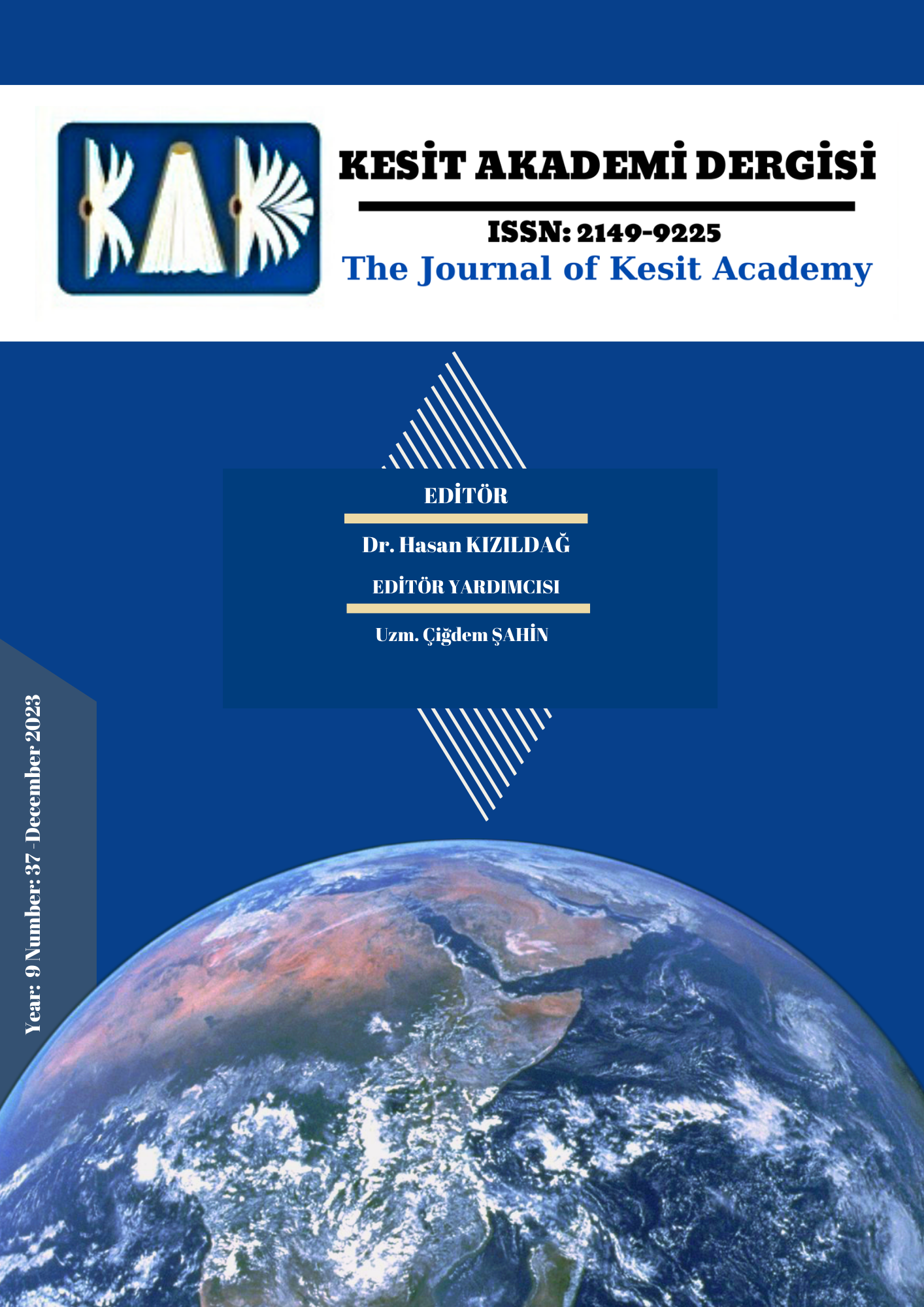Online Alışverişte Etkileyici Unsurlar, Algılanan Fayda ve Algılanan Risk Boyutları Arasındaki İlişki
Author :
Abstract
Yoğun iş temposu ve boş zaman azlığının yanı sıra sağladığı farklı avantajlar ve kolaylıklar, insanları online alışverişe giderek daha çok yöneltmektedir. Fakat online alışveriş, faydaları ile birlikte bazı riskleri de barındırmaktadır. Bu noktada fayda ve risk algısını etkileyerek online alışverişe yönelik tutumu şekillendirmesi boyutunda etkileyici unsurlar akla gelmektedir. Araştırmanın amacı, tüketicilerin online alışveriş tutumlarını etkileyen unsurlar ile online alışverişe yönelik fayda ve risk algıları arasındaki ilişkiyi incelemek amacıyla hazırlanmıştır. Araştırmanın ana kütlesi, Sivas/Türkiye’de yaşayan 18-24 yaş arası genç tüketicilerden oluşmaktadır. Yüz yüze ve online anket yöntemiyle veri toplanan araştırmada 410 anket uygulanmıştır. Araştırmanın değişkenleri (bağımsız değişken: doğrulayıcı, kanıtsal etkiler; bağımlı değişken: ürün seçimi, alışveriş kolaylığı, alışveriş uygunluğu, ürün riski, zaman riski, finansal risk,) arasındaki olası ilişkiyi incelemek üzere korelasyon ve regresyon analizlerinden yararlanılmıştır. Sonuç olarak, katılımcıların online alışverişe yönelik fayda ve risk algısının yüksek olduğu, fayda algısının risk algısına göre daha yüksek olduğu belirlenmiştir. Online alışverişe yönelik doğrulayıcı etkiler ile ürün riski dışındaki tüm fayda ve risk boyutları arasında; kanıtsal etkiler ile tüm fayda ve risk boyutları arasında pozitif yönlü anlamlı ilişki bulunmaktadır. Ayrıca online alışverişe yönelik söz konusu etkileyicilerin fayda ve risk algısını belirli düzeylerde yükselttiği söylenebilmektedir. Dolayısıyla başarıyı hedefleyen işletmelerin, çevrimiçi yorum ve reytinglerin takibi ve yönetimi, uygun içerikler vasıtasıyla tüketicilerin bilgilendirilmesi ve ürünün kullanımı sonrasında tüketicide olumlu duyguların, zengin deneyimin sağlanmasını amaçlayan online faaliyetlere odaklanması önemlidir. Satın alma noktasında online alışverişi etkileyen unsurların algılanan fayda ve risk boyutlarına etkisini ortaya koyması boyutuyla araştırmanın gerek literatür gerekse pazarlama uygulayıcıları açısından önemli katkı sunduğu düşünülmektedir.
Keywords
Abstract
In addition to the intense work tempo and lack of free time, people are increasingly turning to online shopping due to the different advantages and conveniences. However, online shopping carries some risks along with its benefits. At this point, influencing factors come to mind in the dimension of shaping the attitude towards online shopping by affecting the perception of benefit and risk. The aim of the research is to examine the relationship between the factors affecting consumers' online shopping attitudes and their perceptions of benefits and risks towards online shopping. The main mass of the research consists of young consumers between the ages of 18-24 living in Sivas/Turkey. Data were collected by face-to-face and online survey method, and 410 surveys were applied. Correlation and regression analyzes were used to examine the possible relationship between research variables (independent variable: confirmational, evidential online influence; dependent variable: shopping convenience, product selection, ease of shopping, financial risk, product risk, time risk). As a result, it was determined that the participants' perception of benefit and risk for online shopping was high, and the perception of benefit was higher than the perception of risk. For online shopping, there is a positive and significant relationship between the confirmational influence and all benefit and risk dimensions except product risk; between evidential online influnce and all benefit and risk dimensions. In addition, it can be said that these influencers for online shopping increase the perception of benefit and risk at certain levels. Therefore, it is important for businesses that aim for success to focus on online activities that aim to monitor and manage online comments and ratings, inform consumers through appropriate content, and provide positive emotions and rich experience in the consumer after the use of the product. It is thought that the research makes a significant contribution to both the literature and marketing practitioners in terms of revealing the effects of the factors affecting online shopping on the perceived benefit and risk dimensions at the point of purchase.





